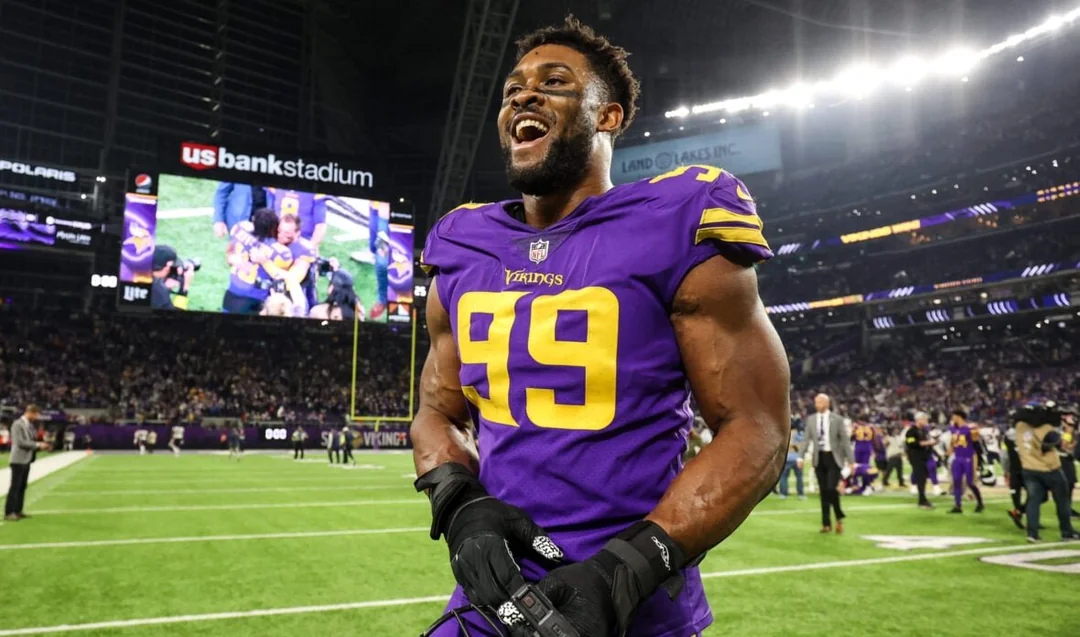
Since the regime transition two years ago, the Minnesota Vikings have experienced significant roster churn, but one important piece of the puzzle will undoubtedly remain in place for as long as feasible.
Christian Darrisaw, a left tackle, will begin his fourth season in 2024 as a rookie with a four-year contract worth $13.35 million. Additionally, the offensive lineman has a fifth-year option on his contract that the Vikings can exercise by early May. He was previously selected by the Vikings in the first round of the NFL draft (No. 23 overall in 2021).
The 2025 season will cost Minnesota more than $16 million if this is done, but considering Darrisaw’s output in his first three professional campaigns and a projected market worth of $24.6 million annually over a five-year period, it is a reasonable price to pay.
Even while some of the injury concerns Kay mentioned before may have contributed to Darrisaw’s lack of consistent Hall of Fame potential, his future is still bright. During his three years as a professional in Minnesota, he has made appearances in 41 of the possible 51 regular-season games, including 39 starts.
Darrisaw has shown to be one of the NFL’s top offensive linemen when healthy. Based on PFF’s advanced analytics metric, he concluded the 2023 season as the 7th-best tackle in the game out of 81 qualified players, having spent several weeks of the 2022 campaign near the top of the position rankings.
Darrisaw played left tackle for 982 snaps, giving up 6 sacks and 7 penalties.
It’s possible that Darrisaw’s one-year extension isn’t the most significant contract Minnesota has to think about this summer. That honor most certainly goes to three-time Pro Bowl wide receiver Justin Jefferson, who will play in 2024 on his own $19.7 million fifth-year rookie option after being eligible for an extension last offseason.
Based on the current top wideout wages in the league, Jefferson will likely reset the market at the receiver position, which would mean a deal for more than $140 million overall and $30 million annually.
The fact that Minnesota waited until this summer to extend Jefferson is problematic. With a reduced salary cap last year, the outstanding receiver would not only have been less expensive, but he would have also been less







